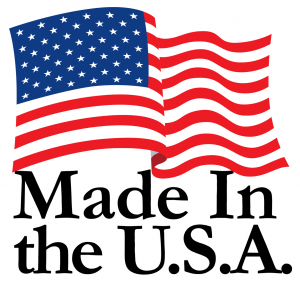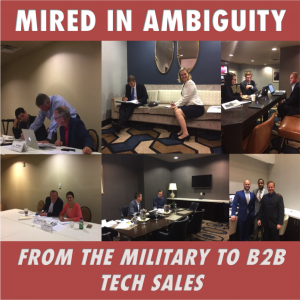“Veterans: You know the value of hard work, respect, ownership of mistakes, and fixing the problem and not the blame. You have the character foundation. You have a leg up. Now you need to add a new skill set for civilian careers.”
– Tina Indalecio
I recently had a chance to interview Tina Indalecio, Director of Instructional Design at Tech Qualled, a training and placement company. As a learning scientist, Tina offers more than a teaching background to enhance veterans’ transition experience.
Below, read how her unique expertise brings a fresh perspective on the value of veterans in the workforce. Learn how she has worked with the Tech Qualled team to design training that optimizes veterans’ potential.
*****
What distinctive values do you personally bring to the Tech Qualled learning process?
After six years as a college professor, I chose to go back to school to understand the psychology behind how we learn. Having a background in learning science allows me to apply cutting-edge instructional design principles and the appropriate  learning theories into our program. As a result, information retention increases, and our learning outcomes are dramatically improved.
learning theories into our program. As a result, information retention increases, and our learning outcomes are dramatically improved.
How is the experience tailored for veterans?
In three ways…
Learner-Focused Approach. The learning content is structured with the learner in mind, how military veterans think and what they bring to the table in a classroom, is very different than how a civilian thinks. That needs to be accounted for when developing our program content. The training program is both immersive and integrated. Take the skill of prospecting, for example… The content is designed so that while they’re interacting with the material and researching the industry, the learners are by proxy developing skills necessary to be successful in sales. There is also just enough ambiguity built into each assignment to challenge rigid thinking and move the learner towards solving complex business challenges.
In addition, the course materials are continually refined based on the feedback from our candidates and data from how each cohort performs. Constant analysis of performance and outcomes enhance the program over time in a way that uniquely resonates with veteran learners and helps produce outstanding candidates for our client companies.
Individual Attention. We are about quality, not quantity and work to ensure a positive learning experience. Our small cohort sizes allow us to tailor the learning experience and respond quickly when learners have questions or need assistance. We know that every veteran learner will have different  need levels. Two courses with identical content will have completely different learning outcomes if there is no response from the instructor or limited engagement in general, versus having a high-touch online learning environment. Our cohort sizes allow us to respond quickly to each learner, and time to devote to those who have higher needs so every learner feels supported. Learner frustration can directly decrease learning outcomes. The benefit of this approach is to increase the overall learner experience and put the learners at ease psychologically.
need levels. Two courses with identical content will have completely different learning outcomes if there is no response from the instructor or limited engagement in general, versus having a high-touch online learning environment. Our cohort sizes allow us to respond quickly to each learner, and time to devote to those who have higher needs so every learner feels supported. Learner frustration can directly decrease learning outcomes. The benefit of this approach is to increase the overall learner experience and put the learners at ease psychologically.
Unique Business Model. Our value as a training company means we are not the traditional churn-and-burn recruiting company that is only focused on the number of candidates we place. We value relationships with our candidates and client companies. That’s one of the reasons why we continually refine our program by focusing on relevant industry content to avoid cognitive overload and to highlight the information the learner needs to focus on in order to be successful once they are placed with a company and to create effective and efficient training. We also have a very steep vetting process when selecting our cohort candidates, but once you’re in, it’s a very rigorous experience, emphasizing maximized value and growth. We also have very strong relationships with the partner companies looking to hire our candidates.
Internally at Tech Qualled, we have cohesiveness, leaders giving praise, and team members that feel very valued. That sets our company apart, and in my experience, that is missing at most companies. The lack of feeling valued as an employee is a main reason why people job-hop.
What kind of candidate does best in the program?
I do not think we would have the same level of success with most civilians as we do with veterans. Our candidates tend to be very respectful and appreciative of the opportunity, and very eager to learn. In my experience, that level of enthusiasm and motivation is not as prevalent with many civilian college and adult learners. Veterans also tend to be highly competitive and motivated to do extremely well, which also differentiates them from typical students. To capitalize on this quality, we use gamification and other competitions within the program, which resonate well with our candidates.
What are the greatest struggles veterans encounter with the program?
The biggest learning challenge is to move away from a regimented way of thinking. Telling our learners that they need to come up with a creative solution is very difficult. In the military, you’re taught not to be autonomous, and there is very little latitude for creative thinking. We are training them in a field that requires them to think outside-the-box every day, where there is no hand-holding. We really challenge our candidates to get out of their comfort zone to be more creative thinkers and problem solvers.
Finally, what advice would you give veteran learners who are starting the program?
You have invaluable experience, and understand the structure, respect, discipline, and hard work. These are all critical to your success in sales.
You did so much training and preparation in terms of time and commitment for your rank and roles in the military… Why do less for your first civilian career? You were often given all the tools you needed to be successful, but in an environment that lacked learning design. You adapted and figured out how to use those tools. Take that initiative with our program, and you will be successful here, too.
*****
Civilian Careers:
To find out more, or to apply for the Tech Qualled Launchpad Academy, visit www.staging.techqualled.flywheelsites.com or contact Meredith Davis at meredith@staging.techqualled.flywheelsites.com. For employers interested in hiring our candidates, please reach out to Nick Breedlove at nick@staging.techqualled.flywheelsites.com.


 efficiencies and increase costs. Think about it — trust is critical to almost any relationship we have: in the office or at home, with our doctor or our elected officials. Naturally, certain relationships require more trust than others, however, the absence of trust is disabling. I’m sure most of us have experienced how difficult it can be to lose the trust of someone else. Decisions become fraught with suspicion, simple communication turns complicated and everything slows down. This made me wonder how trust plays a part for military veterans that are taking off the uniform and assimilating into civilian life.
efficiencies and increase costs. Think about it — trust is critical to almost any relationship we have: in the office or at home, with our doctor or our elected officials. Naturally, certain relationships require more trust than others, however, the absence of trust is disabling. I’m sure most of us have experienced how difficult it can be to lose the trust of someone else. Decisions become fraught with suspicion, simple communication turns complicated and everything slows down. This made me wonder how trust plays a part for military veterans that are taking off the uniform and assimilating into civilian life. question to answer, especially when the question is coming from a veteran and directed toward someone who isn’t. What surprised (and impressed) me most was the simplicity and confidence in his answer: “veterans do what they say they are going to do”. He followed up with a number of other qualities, but it was clear his primary message was that he felt veterans are very good at keeping their commitment.
question to answer, especially when the question is coming from a veteran and directed toward someone who isn’t. What surprised (and impressed) me most was the simplicity and confidence in his answer: “veterans do what they say they are going to do”. He followed up with a number of other qualities, but it was clear his primary message was that he felt veterans are very good at keeping their commitment.


 learning theories into our program. As a result, information retention increases, and our learning outcomes are dramatically improved.
learning theories into our program. As a result, information retention increases, and our learning outcomes are dramatically improved. need levels. Two courses with identical content will have completely different learning outcomes if there is no response from the instructor or limited engagement in general, versus having a high-touch online learning environment. Our cohort sizes allow us to respond quickly to each learner, and time to devote to those who have higher needs so every learner feels supported. Learner frustration can directly decrease learning outcomes. The benefit of this approach is to increase the overall learner experience and put the learners at ease psychologically.
need levels. Two courses with identical content will have completely different learning outcomes if there is no response from the instructor or limited engagement in general, versus having a high-touch online learning environment. Our cohort sizes allow us to respond quickly to each learner, and time to devote to those who have higher needs so every learner feels supported. Learner frustration can directly decrease learning outcomes. The benefit of this approach is to increase the overall learner experience and put the learners at ease psychologically.


